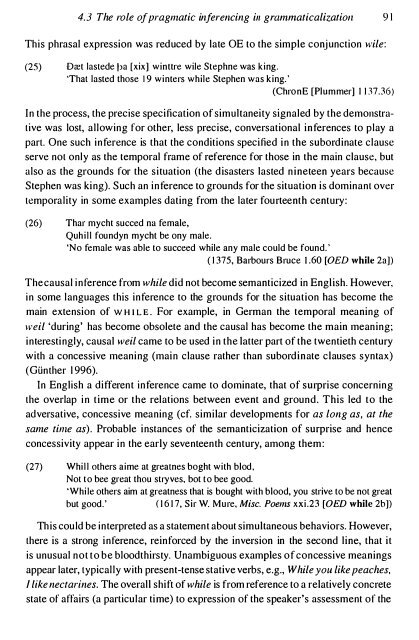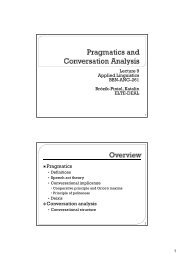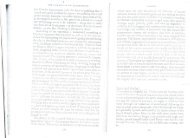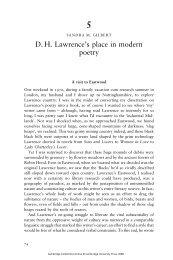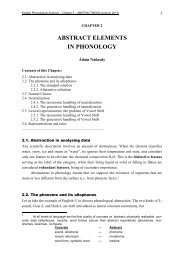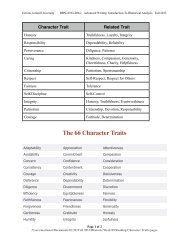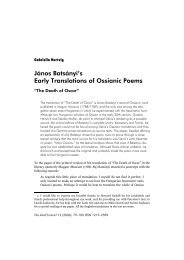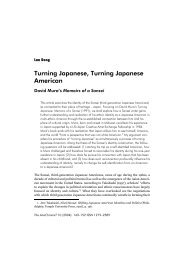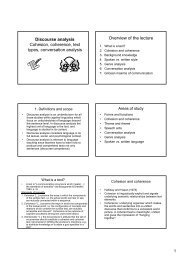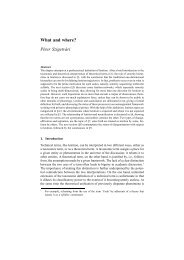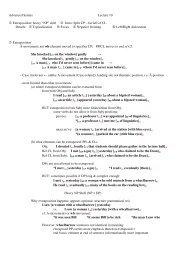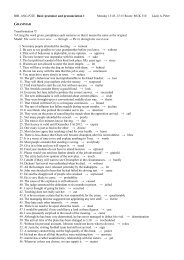Gram - SEAS
Gram - SEAS
Gram - SEAS
You also want an ePaper? Increase the reach of your titles
YUMPU automatically turns print PDFs into web optimized ePapers that Google loves.
4.3 The role of pragmatic inferencing ill grammaticalizatioll 91<br />
This phrasal expression was reduced by late OE to the simple conjunction wile:<br />
(25) Bret lastede I>a [xix] winttre wile Stephne was king.<br />
'That lasted those 19 winters while Stephen was king.'<br />
(ChronE [Plummer] 1137.36)<br />
In the process, the precise specification of simultaneity signaled by the demonstrative<br />
was lost, allowing for other, less precise, conversational inferences to play a<br />
parl. One such inference is that the conditions specified in the subordinate clause<br />
serve not only as the temporal frame of reference for those in the main clause. but<br />
also as the grounds for the situation (the disasters lasted nineteen years because<br />
Stephen was king). Such an inference to grounds for the situation is dominant over<br />
temporality in some examples dating from the later fourteenth century:<br />
(26) ThaI" mycht succed na female,<br />
Quhill foundyn mycht be ony male.<br />
'No female was able to succeed while any male could be found.'<br />
(1375. Barbours Bruce 1.60 [OED while 2a])<br />
The causal inference from while did not become semanticized in English. However.<br />
in some languages this inference to the grounds for the situation has become the<br />
main extension of W H I L E. For example, in German the temporal meaning of<br />
weil 'during' has become obsolete and the causal has become the main meaning;<br />
interestingly, causal weil came to be used in the latter part of the twentieth century<br />
with a concessive meaning (main clause rather than subordinate clauses syntax)<br />
(GUnther 1996).<br />
In English a different inference came to dominate, that of surprise concerning<br />
the overlap in time or the relations between event and ground. This led to the<br />
adversative, concessive meaning (cf. similar developments for as long as, at the<br />
same time as). Probable instances of the semanticization of surprise and hence<br />
concessivity appear in the early seventeenth century, among them:<br />
(27) Whill others aime at greatnes boght with blod,<br />
Not to bee great thou stryves. bot to bee good.<br />
'While others aim at greatness that is bought with blood. you strive to be not great<br />
but good.' (1617, Sir W. Mure, Misc. Poems xxi.23 [Ot:V while 2b])<br />
This could be interpreted as a statement about simultaneous behaviors. However,<br />
there is a strong inference, reinforced by the inversion in the second line, that it<br />
is unusual not to be bloodthirsty. Unambiguous examples of concessive meanings<br />
appear later, typically with present-tense stative verbs, e.g., While you like peaches.<br />
I like nectarines. The overall shift of while is from reference to a relatively concrete<br />
state of affairs (a particular time) to expression of the speaker's assessment of the


